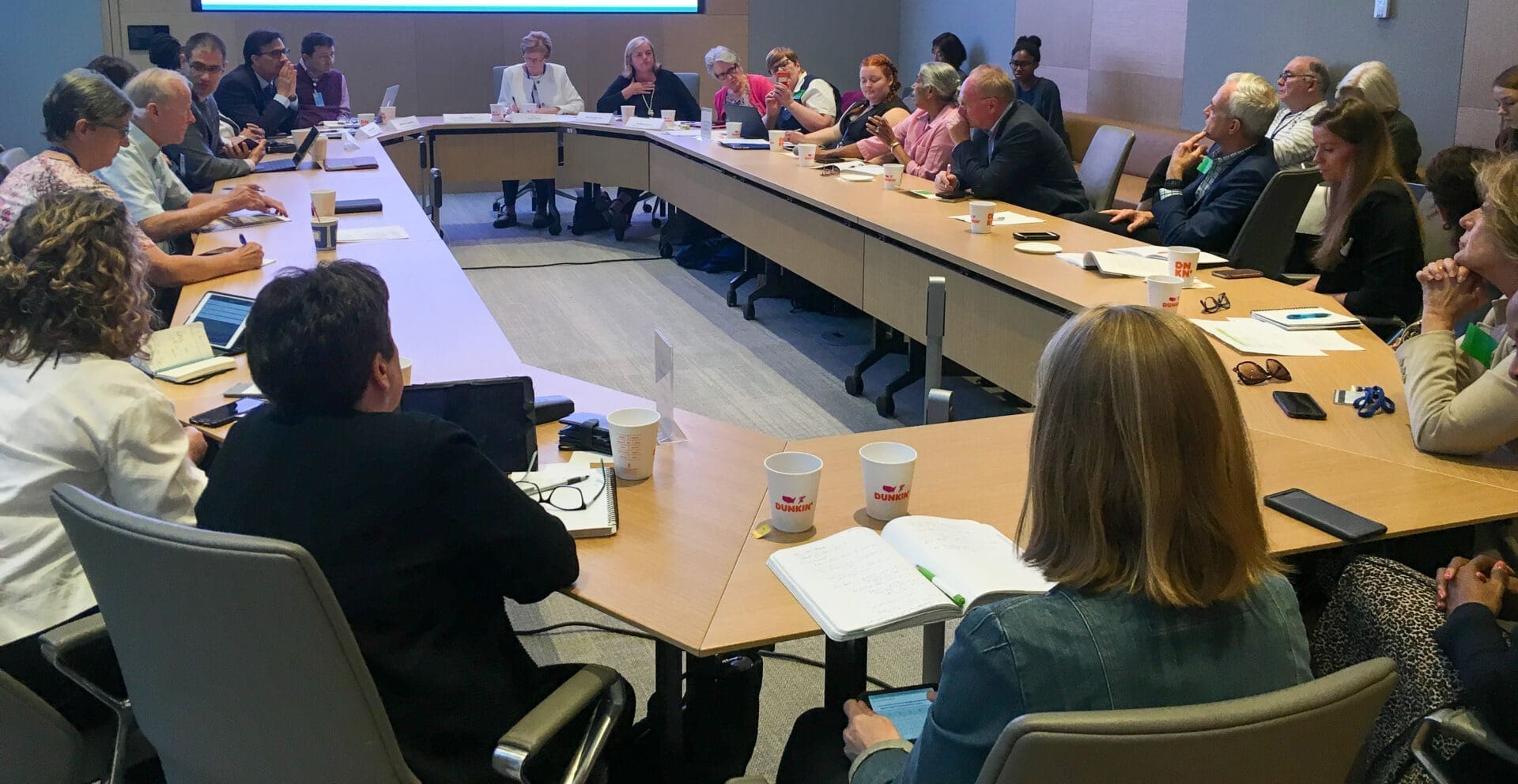The United Nations is including homelessness in its vocabulary for the first time in its 74 years history. This has been achieved thanks to the Vincentian political advocacy alongside other civil society organisations through the NGO Working Group to End Homelessness (WGEH).
Because the UN has never considered homelessness, there is no agreed definition of what it is. The WEGH is making the case to adopt a definition in line with the Institute of Global Homeless (IGH, our strategic partner in De Paul University in Chicago) proposal. The work began in May, with a first meeting in Nairobi, Kenya, of a group of experts. Among them was Dame Louise Casey, from IGH.
The WGEH is a coalition of organisations with the common goal of achieving global measurement of street homelessness, put an end to it and to spread effective strategies across member states.
In 2019, after many efforts by the Working Group members, the Commission for Social Development of the UN (CSoD) decided to focus its next session on homelessness. This commission advises other UN bodies, and at the end of the session the Secretary General will present a report on the issue.
As part of the political advocacy, the WGEH organised an Open Dialogue at the beginning of June in which the UN Director of Inclusive Social Development, Daniela Bas, and FHA staff took part.

Our group, deeply influenced by the Vincentian NGO leadership, is calling on UN member states to take initial measures to counter the exclusion of people to an affordable and dignified home. The global discussion is beginning, and the issue is entering, little by little, into the broader conversation around social protection floors for everybody. At the same time, the challenges that homelessness represents to achieving the Sustainable Development Goals are being explored in a structural way.
The WGEH’s identity and mission has evolved. Today we are a working group deeply connected with the NGOs in the CSoD. We, alongside the IGH, are setting up a global coalition of NGOs united by the aim of a world in which everybody has a home.
We believe that in order to achieve real progress on this issue, it is key to identify opportunities, starting with clear global measurement of the problem; to develop shared goals to reduce or eliminate homelessness; and to support a global movement to spread the most effective strategies in every member state.
From the coalition of Vincentian NGOs at the UN, we believe the Vincentian Family option to create a world where everybody has a house is also today a specific tool of discernment and decision-making inside the Family’s interpretation of the Charism. With this option the VF has identified a group that Saint Vincent would have called “the most abandoned” and has decided to pull together to assist in their integral liberation as a common option.
The 13 Houses metaphor has an unsuspected reach. Recently, the Orthodox Archdioceses of New York asked me about the Campaign because they would also like to implement it. The creativity of our Charism has not run out; the option for the homeless and the global movements it is generating around the issue are a true sign of this. Accomplices of the Spirit make sure it happens wherever we carry out our mission!
Father Memo Campuzano CM, Representative of the Congregation of the Mission in the UN.